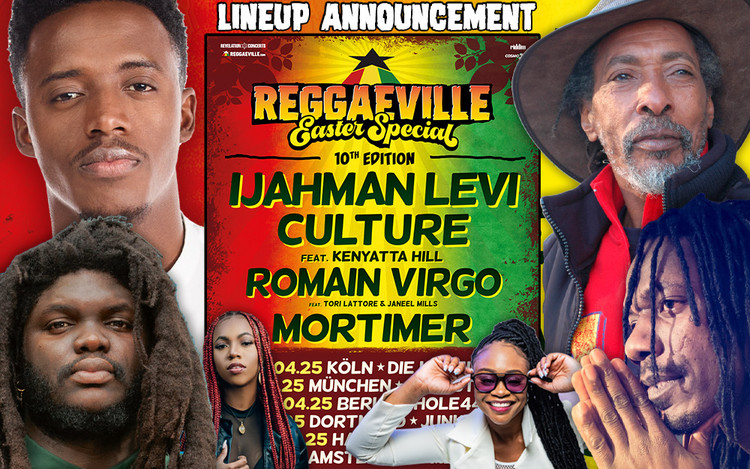Aleighcia Scott ADD
Aleighcia Scott - The 'Windrush Baby' Interview
03/08/2024 by Angus Taylor
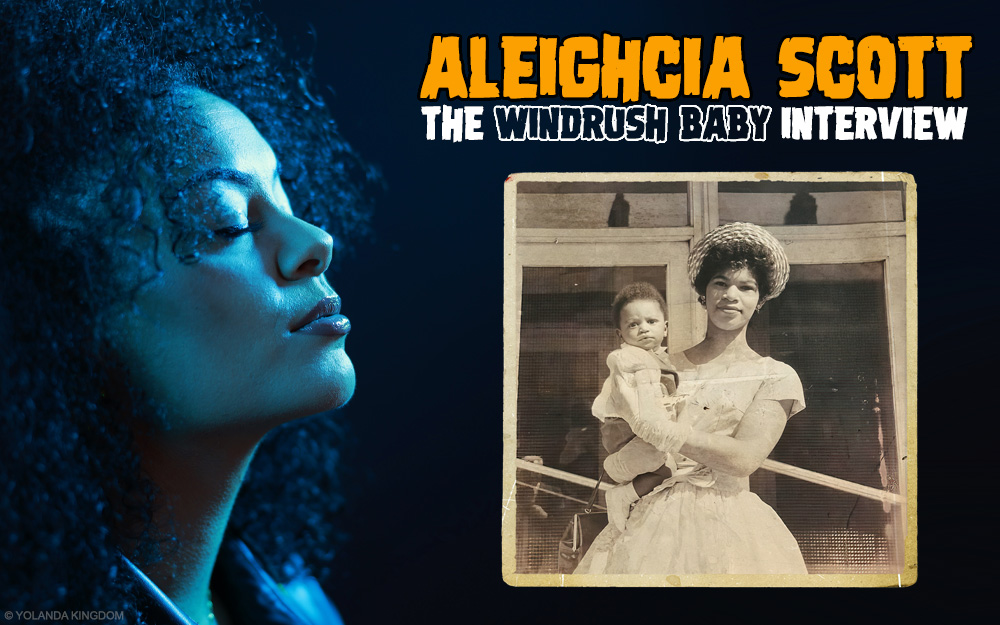
Fusing the power and passion of two proud music cultures, Wales and Jamaica, singer and presenter Aleighcia Scott continues to rise in her two chosen callings. As a singer, her debut album, Windrush Baby, produced by Rory Stonelove, was voted a very respectable number 10 in the Reggaeville ALBUM OF THE YEAR poll 2023. As a presenter she has her own show on BBC Radio Wales and fills the coveted seat on David Rodigan’s BBC 1Xtra show when the reggae eminence is otherwise engaged.
On March 9th, Aleighcia starts her first ever UK solo tour. So when Reggaeville’s Angus Taylor ran into Aleighcia in Jamaica (as they both happened to be watching the same live performance in a Kingston jerk spot), it felt like the right time to arrange an impromptu interview. The nature of the encounter was fitting, for as Aleighcia explains, her success is the result of hard work and happenstance in equal measure…
So instead of asking you how you started singing, I'm going to ask. “Did anyone have a chance of stopping you from singing when you were young?”
(Laughs) I don't think so. There's a picture, where you get your hospital photos, like fresh out of the womb, and it actually looks like I'm singing. Yeah, so I just think it was inevitable. My first words were when my dad was singing a song to me and I was trying to repeat the song back so it was always going to happen.
Do you remember the song?
No, and they don't either! I've asked them and they don't remember!
Singing is a big part of Welsh and Jamaican culture. Do you think that gave you more of an impetus to get involved?
Yeah, definitely. I think music is around both cultures heavily and there's a depth to it. Music comes from the heart and the soul in both places. So it's a big part of everything we do. I think that being from both places and definitely proud of both places that I come from means it's massive.
What other similarities and differences do you find between the two sides?
I feel like both sets of people are welcoming people. Typically in Wales or Jamaica people are saying “good morning” on the street or saying “thank you" to people walking past if they've moved a door. Sometimes I'll start a conversation with people and people will look at me like I’m strange! And I'm like “Ah, this is so normal where I come from!” (laughs) So that's a big one. But also communities and families are a big thing in both cultures. And also food. Most definitely food.
How much infrastructure and support were there for young people in Cardiff who wanted to sing at the time that you decided to do it?
I was quite lucky I came through the youth club route. I had some really supportive youth workers who made sure they found me studios. In my later teens there were more youth workers who were just going the extra mile for young people who wanted to express themselves and had something they wanted to share. So I was really lucky with that.
My youth leaders in Cardiff found a studio for me in another youth club and I would go there. And then eventually I went to another studio in Newport. Jamie Winchester, who ran the studio, is a youth worker and youth leader and a genuinely amazing person. He helped me with the business side of music and helped me to learn from my late teens. Then I guess everything happened naturally from there and you just meet different people along the way and start creating in different capacities.
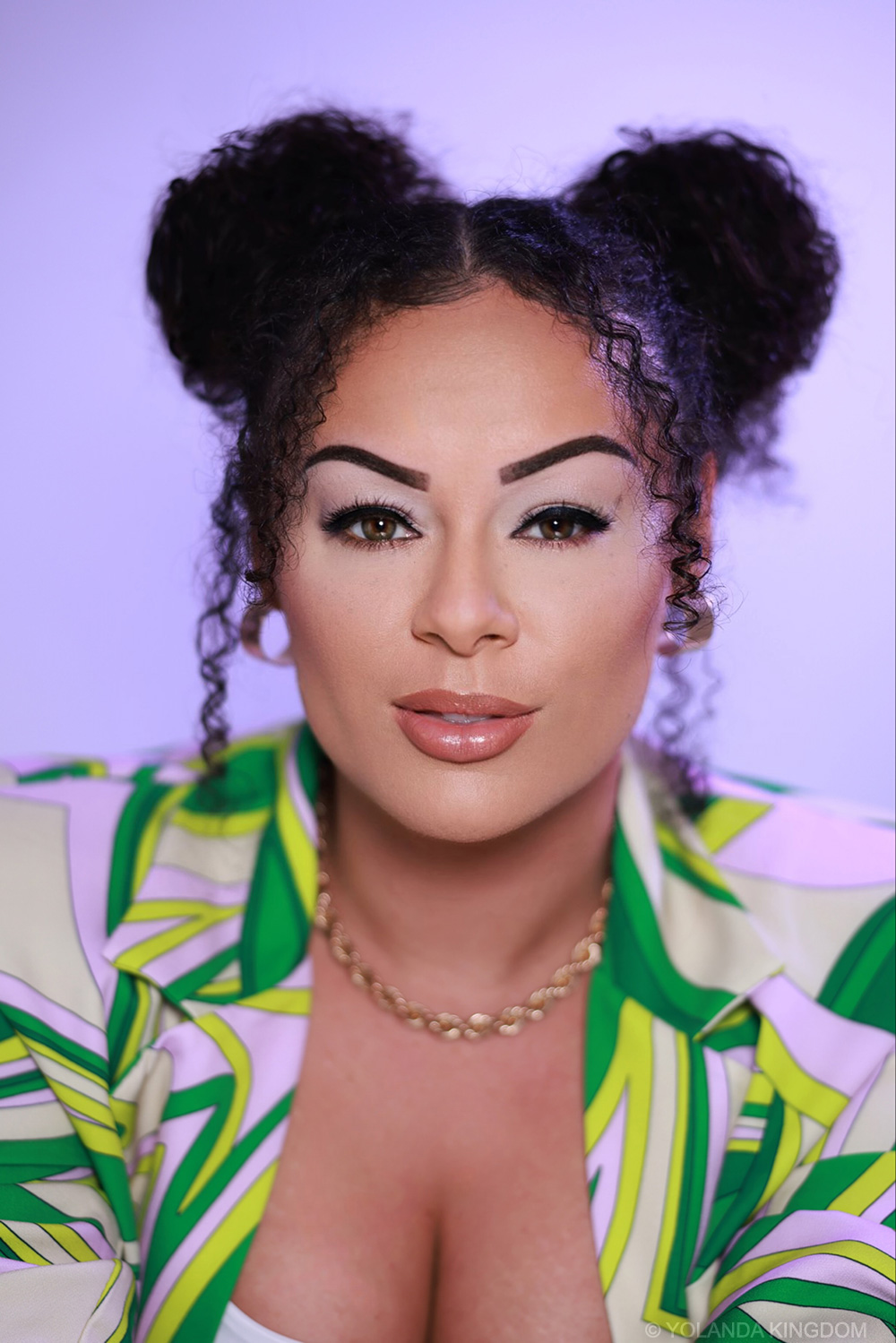
Who would you say growing up were your favourite reggae singers and your favourite soul singers?
So many! I love Etta James, Lauryn Hill, Erykah Badu, Sanchez, Dennis Brown… so so many.
Can you tell me about your first appearance on stage as a child?
I was 7 the first time I performed properly. Again, I'd been part of a youth club thing where we would go there every Friday and sing a song. And the youth club would get shows in different parts of Wales. One of my first shows, I remember at 7, was a thing called Big Weekend in Cardiff. And that was quite a big deal at the time. I think Aswad performed there one time. So it was kind of like a big stage show. Even from then I just knew how I felt in that moment, like nothing else could top that. And it's still the same to be honest. I've never lost that feeling.
How did you get your regular residency at the Irie Shack in Cardiff?
That came about because I had been part of the Newport scene for a little while. Obviously going to a youth club in my late teens there and kind of staying in that music scene. There's a gentleman in Newport who has a lot of live venues. He had invited me to open the show for Tippa Irie. It must be close to 10 years ago now, and he had seen me perform and knew that I wanted to pursue music. He was opening the restaurant in Cardiff, and it was just supposed to be a couple of spot performances, but it ended up turning into a residency, because I just really enjoyed the vibes there and it was a great place for me to home in on my live performance and build that.
And from there you went from supporting some very big artists - like Tarrus Riley, Julian Marley, Agent Sasco and Soul II Soul - to becoming a headline live performer in your own right. What was that journey like for you?
It's been a big journey. I can't lie. It's been a lot of work. I guess sometimes people see the glam stuff you do but don't always get to see the stuff that goes into it. I do work a lot and I do put a lot of time into it. But I love it. To be able to live in what I love and that this is my actual occupation is crazy to me and I still can't get over that fact. It's really nice. I'm going on tour. My own tour for the first time in March. Yeah, that's wild to me. I've supported so many people over the years. But I've never actually done my own tour. So a few times I've just looked at the poster and thought “What???” But yeah, it's amazing. It's really nice.
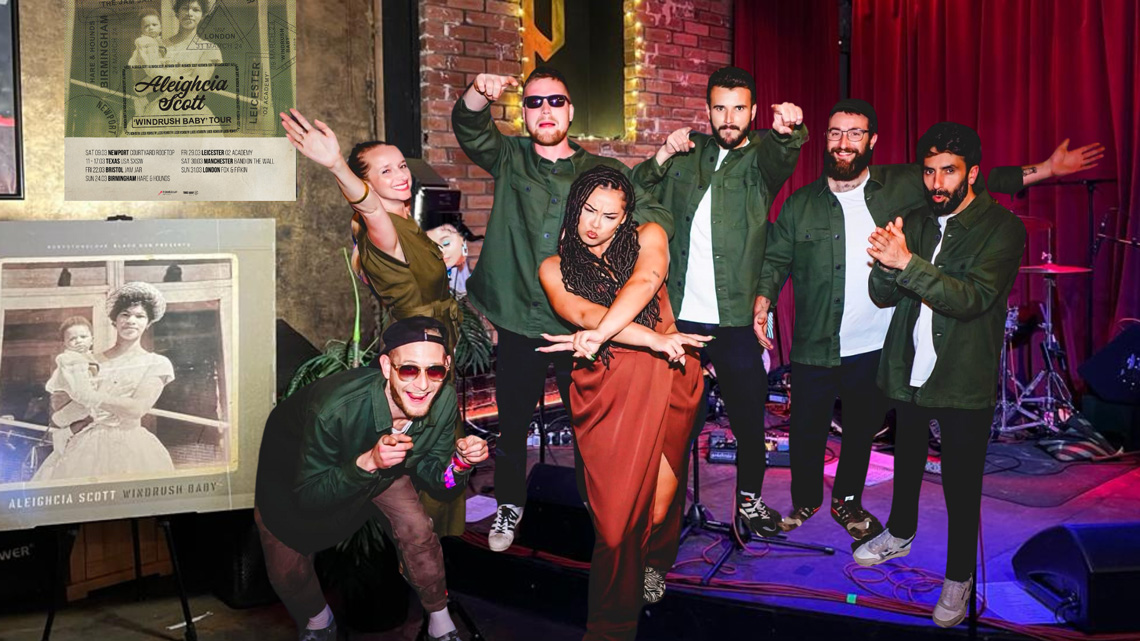
How did you link with Peckings and create your 2018 debut EP Forever In Love?
A few people had sent me some of his instrumentals and said “Maybe write something over these”. I really enjoyed them so I thought I would send him a demo of something I'd written and ask him if it was OK if I released it. But he said “actually, I've got a few more so let's release a project”. I think we turned the EP around In maybe six months? But yeah, Peckings is family. So there's probably going to be more works going on. I had a really nice time and that is my first ever project, so for that to come from Peckings, that is massive for me.
You sang a version of Walk Away From Love, which was originally sung by the soul singer, David Ruffin, but then covered in rocksteady by Bitty McLean over an Alton Ellis rhythm. So it's got quite a history in reggae and soul, the two musics you love. How did it feel to go on that vintage rhythm and sing that song?
Scary! (Laughs) Obviously both of those versions are massive. And obviously growing up with the Bitty McLean version, which was iconic in every West Indian household, in the UK and worldwide. I've been in dances in Jamaica where people have cried singing every single lyric because they love the song so much. So to be a part of that was massive. Scary but I also love the song so I hope I did it justice.
Another big rhythm that you went on for that Peckings project was Barb Wire by Nora Dean. Did you grow up with that one? And how did you feel about taking it on?
So as a child it was kind of like a taboo song for us! But again it's part of a huge legacy. Now there's a surge of women in reggae but it hasn't always been that way. So to be part of something iconic that stems from one of the foundation ladies of reggae, that was huge too. So really important and to link up with Shanty B on the remix as well - that was really special.
If you look back at the history of Jamaica, at any given time there was a Marcia, a Phyllis Dillon, a Nora Dean, a Joya Landis, even going into dancehall with a Lady Saw or Tanya Stephens. There was always a female icon who was often selling as much as the men, but there was often only one at any given time. And as you say today there are a lot of female artists all doing their thing at the same time. What do you think has changed and how does it feel to be part of that?
First of all, It's amazing to be part of that and a blessing also and I love seeing it. I really love seeing it. I think for so many years, within music, if there's a woman in a space and then another woman is in a space, people tend to try and pit them against each other. When we’re just women in a space creating music. I think people are understanding that a bit more now, which again is amazing. And I'm really loving the energy coming out from these amazing women. Sevana, Lila Iké, Naomi Cowan, Tasonia, Teshay Makeda... There's just so many and I love it. It's great.
In 2021 you linked with Kongz to do a couple of big tracks I Want You and Cry which went to number one in the iTunes Reggae chart and were playlisted by the BBC.
I met Kongz a couple of times in Jamaica. Just from different stage shows and working with the same people. He had heard my vocals and said “I've got something that I think would actually fit you. It’s a Studio One type of vocal and I know this is for you”. So he sent me I Want You. This was our first collaboration and he was just so easy to work with. And again, so talented. And then naturally Cry came second because we just wanted to keep creating some music. I've no doubt I'm sure we'll work together again.
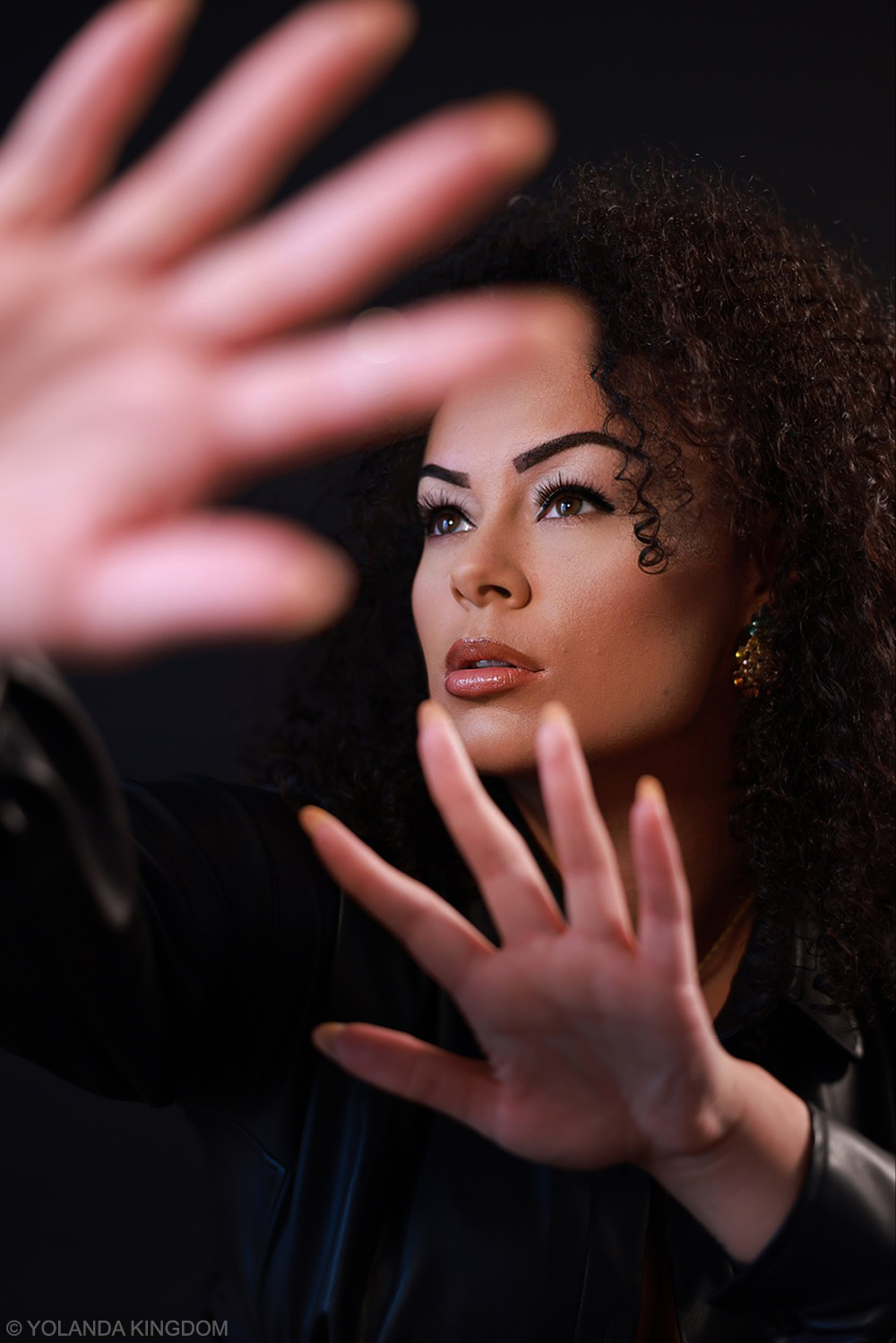
The last time we did an interview was in Jamaica when you were working on your debut album with Rory Stonelove. How did you link with him?
Wow, so long ago. So Rory had messaged, maybe like 6 or 7 years ago. And he had seen some of my videos that I had put out of live performances. And he had heard some of the videos I'd put of just me singing and stuff. He messaged me and said, “I would really like to work with you. But you'd have to come to Jamaica”. So I said “OK no worries, see you in two weeks”. My auntie lived off of Maxfield at the time so I had somewhere to stay. I don't think he believed I was actually going to come out to Jamaica. So when I messaged him and said “Ok, I'll see you tomorrow” he was like “What?” So from then we just hit the ground running really!
In the first eighteen months we had a whole album. But the first 2 tracks we did, the others didn't really match up to it. The first two tracks were Maybe and This Way from the album. And then everything else that followed didn't quite match. So we scrapped all the rest of it and started again. But I'm glad we did that. Because we wouldn't have created all the rest of the stuff that we made. So it's been a process but yeah I’ve learned so much, it's been amazing.
It's clearly been a labour of love for both of you. And it ended up being released to coincide with this seventy-fifth anniversary of the Windrush. Both you and Rory have that kind of connection with the UK and Jamaica together. Was that concept there from the beginning or did it kind of grow?
I think it just came naturally. There wasn't an intention of “Okay this is going to be about Windrush”. But quite a few people called me ‘Windrush Baby' just in general. So it kind of just stuck, and then one day we were like “Yeah okay that's what it's going to be called”. Because like you said, we both stemmed from that and it's really important for us. Something that's honoured and it's really important. And again, We just both love music so much. And it's important for us to have created something authentic as well.
Let's talk about some of the musicians who played on the album. I can't go into all of them but there's so much talent on the record. You've got Bubbler Waul who played on those great Dennis Brown tunes at Joe Gibbs. You obviously grew up listening to Dennis Brown. You got Danny Bassie who played with Protoje. And of course you worked with Kongz who also played with Protoje. So you've got the vintage in the modern. And you've also got someone like Dean Fraser who has been playing all the way through with everyone and kind of spans the eras. What was it like working with these talents?
Amazing. All my life I've listened to music that includes these musicians. And then all of a sudden, I'm in the same space as them working on stuff for me. Even now, I remember the first time I went to Anchor to do a session. Most of the sessions were done in the Black Dub studio, but when the rhythms were being created sometimes it would be in Anchor. Even opening the door, walking into the Anchor studio was crazy for me because I've heard all these iconic stories about all these artists that I have literally listened to my whole life. Now being there and creating history and creating the music they have, and I'm in the same space. It's still now, six-ish years later it still seems so mad to me. But it's a beautiful feeling.
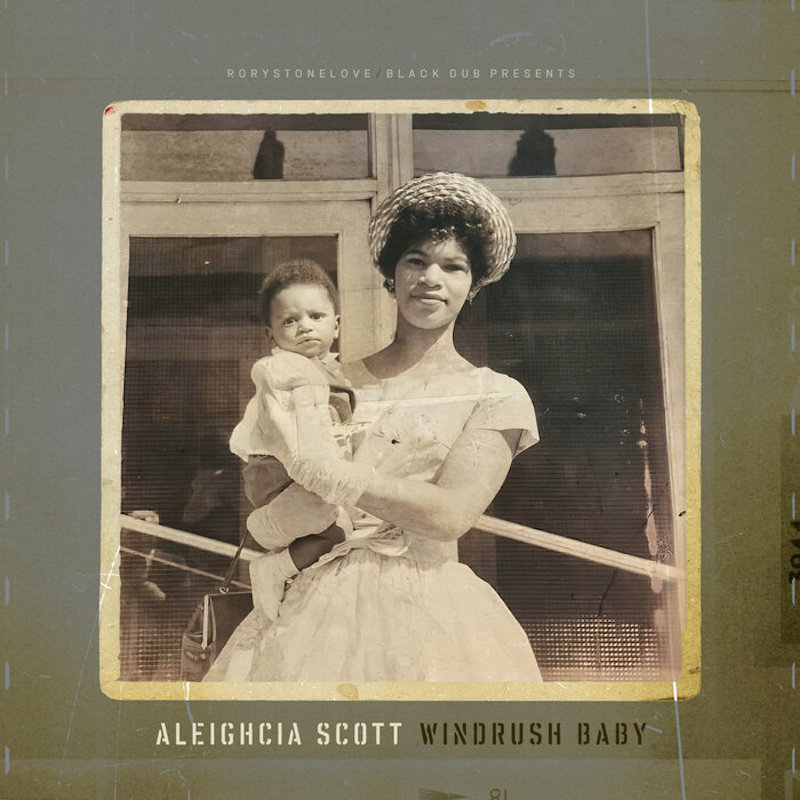
So the first single from the album, Do You, much like Walk Away From Love, is a song that has really been on a journey. Originally it was done by Brook Benton. Then it was covered by Nat King Cole. Then it was redone by John Holt and then you. How did you decide to do it? It really signposted what a great album it was going to be.
Well for us, there wasn't really a plan of covers. Essentially, It was just going to be fresh, brand new songs. And then, I walked into studio once and Rory said “Sit down, let's listen to this on blast”. So he turned John Holt Do You on loud and he said “Do you agree that this is going to be a cover on the album and the only cover on the album?” And I was like, “Yes, I agree!” (laughs) So I think we just both sat there and even the strings alone, everything just made sense for us to do something so big.
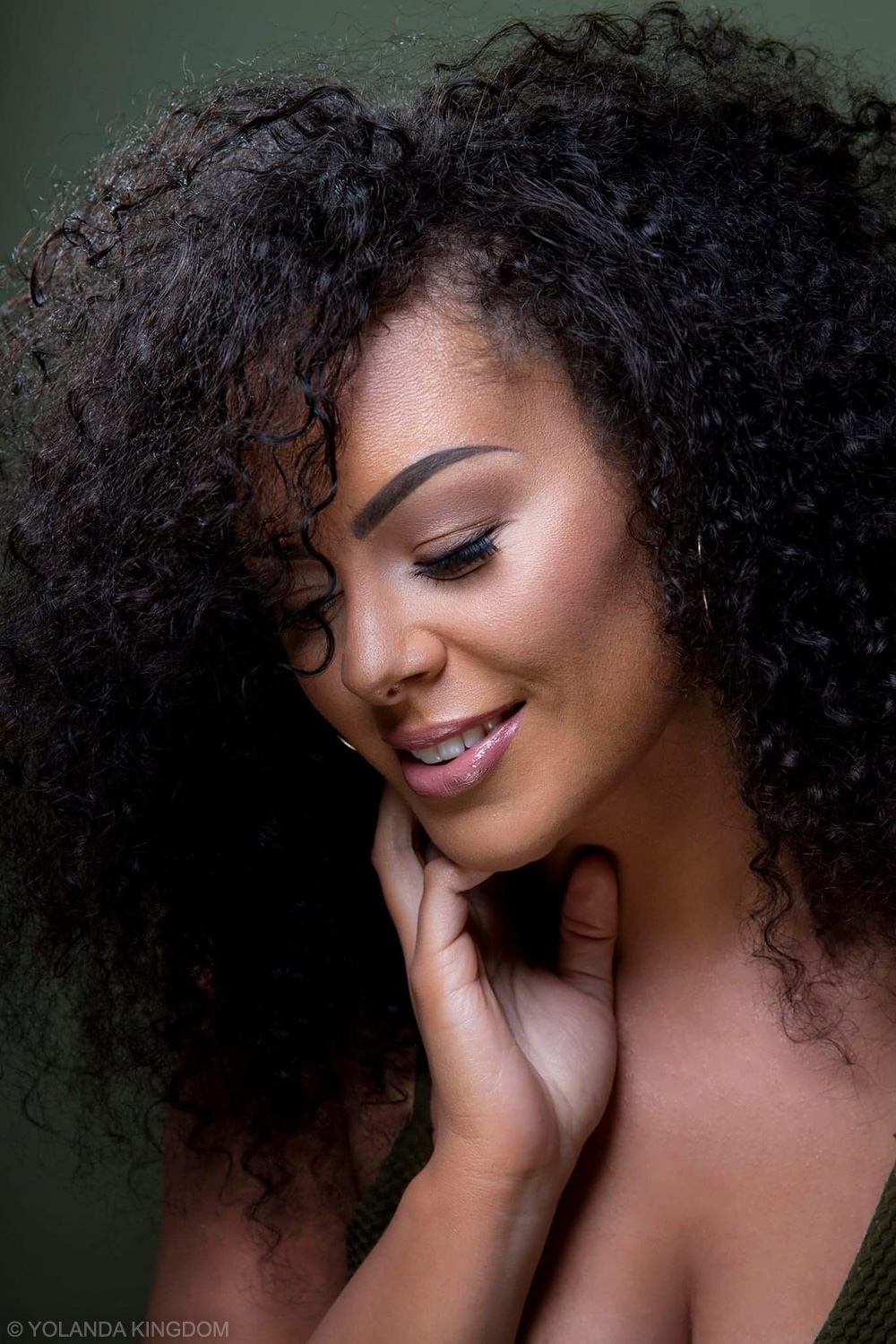
So the next single Pretty Little Brown Thing tackles a lot of topics in one song. It's about the complexities of a person, and all of the multitudes they contain and how you can't reduce anybody to just one thing.
So we live in a world where there's lots of fetishisation of black women. And it's not often talked about. So it was important for us to bring that message and highlight that message to people. But also like you said, the complexities of being a human in general. People just take people at face value. So all of that in one story. Really Raquel Jones who wrote the song is amazing. I think it's really important for us to take that message and put it in a song.
And you also do a bit of singjay on that song as well.
(Laughs) So again when Raquel came with the song, Rory said “No, not that, she can't do that she can't singjay”. I said “I can!” One thing about me, You can't tell me I can't. I can do it. I said “Give me the song and I'll come back to the studio tomorrow”. So I went home and I worked hard and I went back to the studio. And he was like “Oh! Put it on the album.”
The next single In My Shoes goes back to the sounds of what I'd call ska-steady, kind of bridging between the ska and the rocksteady. It just shows the versatility of the album musically topically and lyrically.
Well, we wanted it to be an authentic reggae album. And you can't have reggae without having ska. So for us just that little touch on the album it's nice. And I feel like that’s a universal song as well. So whether you're a reggae head like I am or not, it's kind of the bridge into a different world, from the reggae world to wider listening, if that makes any sense.
I want to talk about one more song which is Hey World, which has a disco reggae vibe, a sort of Could You Be Loved beat. But in that beautiful and commercial package you're singing about a lot of social issues. We've talked already about not wanting to put female artists in a box. But romantic reggae is what people knew you for, so tell us about that step.
I think it was important for us. As an artist, I've always been quite a creative and a storyteller but that hasn't always been able to be shown. So within this album I liked the different subjects and the different contexts of all the songs. And Hey World, in the world we are in right now, has really important topics all the way through. And Mikey Bennett actually came with us for that and we sat down and went through the song. And wherever you are in the world, there's some part of the song you can connect to and relate to. And it tells the story of where you might be.
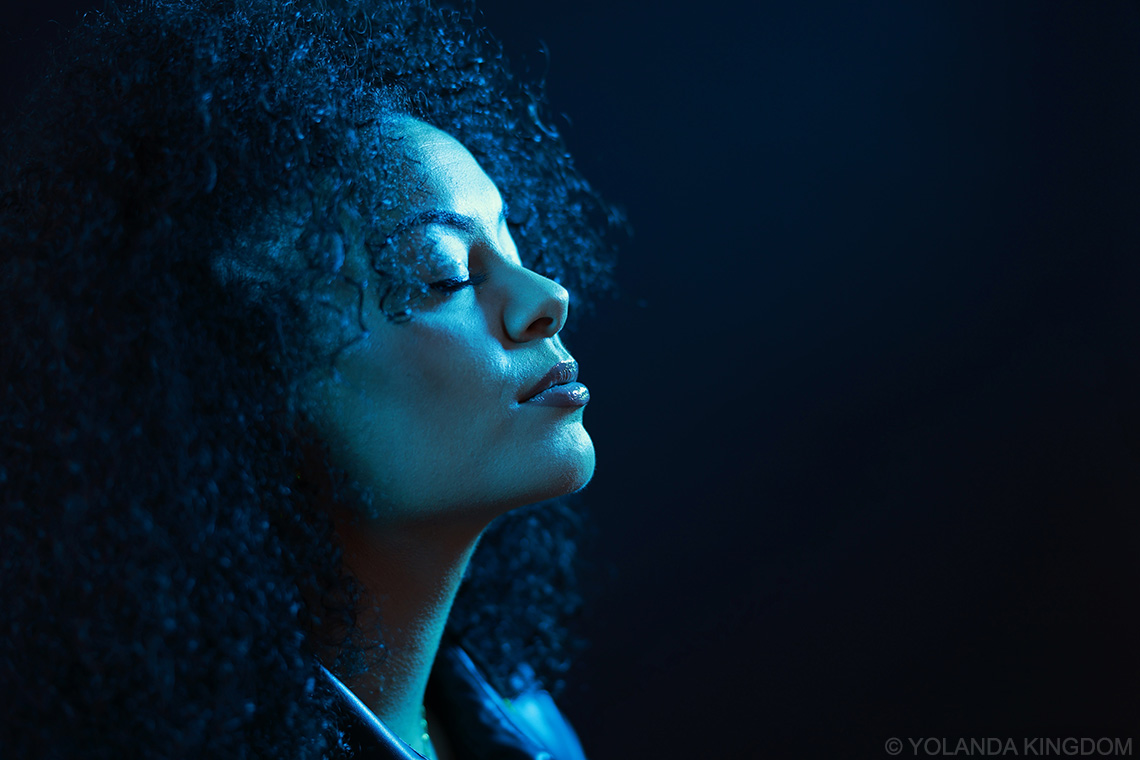
The album was voted number 10 in the Reggaeville album of the year poll. For a debut album that's very high. How did that feel?
Amazing. Because I didn't know I was in the running and I saw somebody had tagged me in something. I thought “What??” So it's nice because we did put our whole heart and soul into this album and it's obviously been a journey for a few years we've been on. So for people to actually say “Yeah we really like this album” - it's really nice.
Moving away from singing, you are also a presenter. You've been covering for Rodigan on his 1Xtra show, which is absolutely huge. You're probably better qualified to be interviewing me than the other way round!
(Laughs) That's debatable! But yeah it's absolutely crazy to me. I've always been a fan of music regardless of being an artist. For me I just love music in general. And reggae is obviously the biggest passion in my life. I love reggae music. So I started with a show on BBC Radio Wales. I have a Thursday night show there. And I remember being at a festival and David Rodigan was there. He said “Aleighcia” I said “Yes?” “I've decided you're going to be my cover.” “Oh! OK that's amazing!” And I think before he'd had guests coming and cover him. But he said he wanted a cover person now. I'd like to think he understands my love for reggae and how important reggae is for me. In life regardless of being an artist or not. Reggae is important. It's message music. It's global music and it's important that that gets shared and continues to be shared. So yes I guess that's how that happened!
You've also been doing a lot of Welsh language presenting. Which is another huge challenge that you've thrown yourself into.
As someone who is still very much a learner of Welsh, a new Welsh speaker, there are some words I guess I don't know. So I feel like my personality is slightly different in Welsh than in English. Just because my vocabulary has obviously a wider range in English. Again debatable! So there's a slightly different personality from me maybe in each language. It sounds weird to say but because I’ve been on that journey, I can feel the difference. But it was really important for me to learn Welsh because growing up In Welsh media there wasn't necessarily anybody who looked like me. So I feel like if I'm in a space where I can help to make a change for people who look like me, young boys and girls who look like me and feel like there's no one representing them… If I can be in that space, then I definitely will.
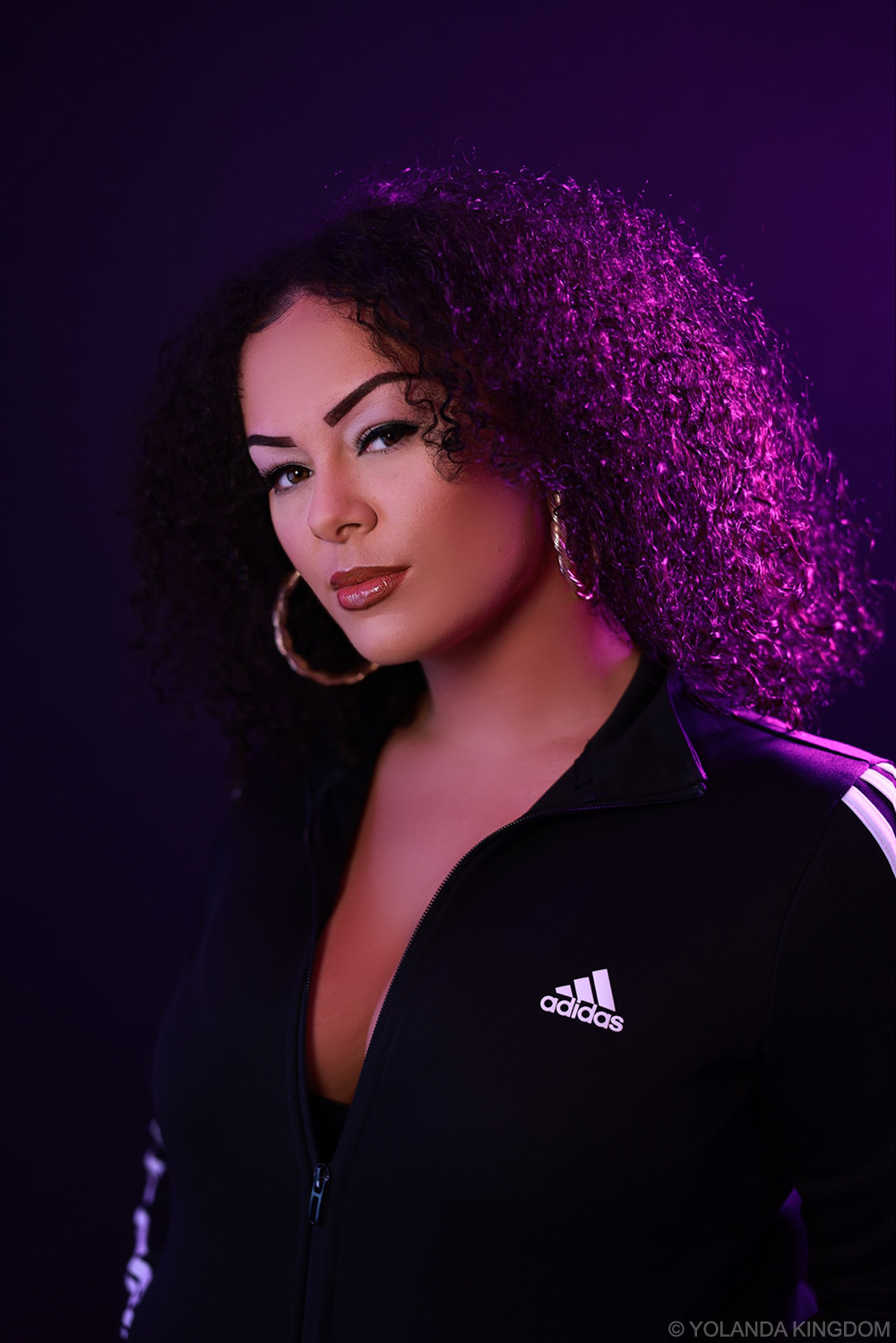
Do you feel like you have to context switch between the singing and the presenting or is it all just one flow?
I think regardless of whether it's Welsh or English it depends on the project time working on. Sometimes it's not always music related so it's just different contexts completely. But strangely it kind of all works together. Even in the space of timing-wise, I'm always a massive believer. In whatever God has for you it will never not be for you. “Whatever's for you can't be unfor you” as they say in Jamaica. And even when it comes down to bookings, it worked out. Festival-wise the bookings that I ended up with being different days to the radio that was happening. It just all kind of works together. And again I love live music, I love new music, old school, new school, everything. So in being in those spaces as an artist, I hear new music or I buck up a song that I haven't heard for years, and then i'm like “oh I'm gonna play that this week!” So it all works together.
Which brings us back round to the final question. You've performed at Glastonbury, you've performed in Jamaica, you've performed at Notting Hill Carnival. You're about to go on your very first UK tour.
Yeah! It's absolutely wild. My own tour is nuts. I've supported people for years but I've never done my own tour. I've done my own shows singularly. But never my own tour. It's scary and I hope there will be people there to watch the shows! But also I just feel like It's the right time now. The album is out and I'm glad to see people enjoying it and listening to it in countries all over the world, which is wild to me. So UK tour and then we’re going to be going to the US as well. In the UK we’re going to be in Bristol, Newport, Birmingham, Manchester, Leicester, all over the UK and then we go to America and do South By Southwest. The tour starts on the 9th of March and then the last date is London on the 31st of March.
What do you think you'll do next?
I try not to pin myself to things. And ninety percent of everything I've done has come around naturally from things I've been doing, and then you're just elevated to the next part. I guess there's a few things in life, I’d like to do, but I'm happy to see where the journey goes for now with what I'm doing already.




